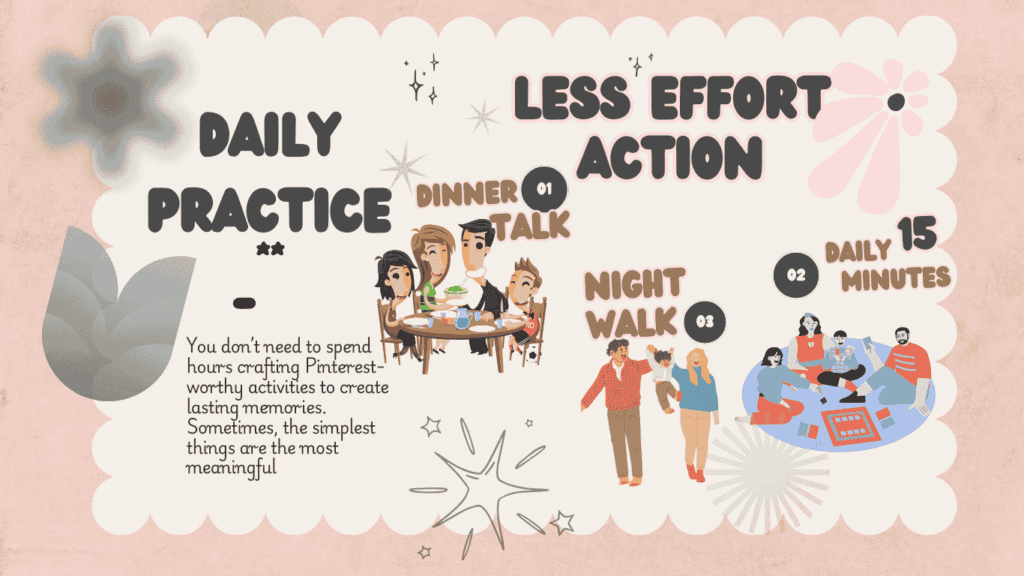Why Is Balance So Tough?
Let’s be honest—the idea of balance looks stunning on paper. Think color-coded calendars, meal prep that runs like clockwork, kids dressed and out the door on time, inboxes at zero, and hydration goals met. You picture yourself showing up as the composed, serene version of yourself—totally in control.
But real life? Well, it usually plays out with you racing against time, juggling coffee in one hand and a half-packed lunch in the other, replying to work emails mid-dinner while wondering when your laundry became a mountain.
So why is balance so tough—especially when we crave it so deeply?
The truth is, we’ve been chasing an ideal that doesn’t truly exist. The perfectly balanced life is more myth than reality. Yet we continue to hold ourselves to this standard, measuring success by how well we juggle it all. The result? Exhaustion, guilt, and constant second-guessing.
It’s time to unpack this.

Let’s explore why balance feels out of reach and how, with a few mindset shifts and intentional choices, we can redefine what balance looks like—and even find joy in the beautifully imperfect chaos that surrounds us.
Why Is Balance So Tough? Let’s Look Closer.
This leads us to reflect on why is balance so tough, especially when we see others seemingly managing it all with ease.
It’s a question we all ask—why is balance so tough? Why, despite our best intentions and calendar reminders, do we feel like we’re always falling short?
In today’s fast-paced world, most of us are navigating a complex juggling act. Careers, parenting, relationships, personal well-being, social obligations—it’s a lot. And with so many competing priorities, it’s no surprise that balance feels elusive.
Understanding why balance is so tough is the first step toward making peace with your present and designing a lifestyle that supports—not drains—you.
In the midst of our routines, we often question why is balance so tough as we juggle responsibilities and expectations day in and day out.
To illustrate this, let’s take a walk through a typical day in a busy household:
You wake up early, trying to squeeze in a quick workout or meditation (if you’re lucky). Then comes breakfast prep, lunch boxes, and a few reminders shouted over the sound of a toothbrush to your kids. You rush to work, shifting gears into full productivity mode—emails, deadlines, meetings.
As we navigate our roles, it becomes clear that understanding why is balance so tough is essential if we want to create a fulfilling life.
By evening, you’re back in family mode: dinner prep, homework help, maybe a meltdown or two, followed by the bedtime routine. Somewhere in between, you’re supposed to hydrate, respond to texts, keep the house somewhat clean, and rest. Sound familiar?
Balance doesn’t feel tough because you’re doing something wrong; it feels tough because modern life is inherently overwhelming. But it can be navigated with more intention.
By addressing why is balance so tough head-on, we can start to shift our perspectives and find harmony.
Why Balance Feels So Hard (for Busy People Especially)
1. Unrealistic Expectations
By recognizing why is balance so tough, we can better set boundaries and manage our time effectively.
We live in a culture that expects us to be everything, everywhere, all the time. We try to meet work demands, keep our families happy, stay healthy, socialize, budget, clean, and self-care… all in one day.
This isn’t balance—it’s burnout with a glossy filter.
And let’s not forget the guilt. When we fall short (which we inevitably will), we criticize ourselves. This internal battle is exhausting and unsustainable.
Try This: Choose one or two priorities per day and let the rest wait. You’re not failing—you’re focusing.
2. Lack of Boundaries
In a world where we’re always connected, boundaries blur. Work emails sneak into family dinners. Social media distracts us from real-life moments. Quiet time becomes background noise.
Boundaries aren’t selfish—they’re vital. They help define when you’re available and when you’re off duty. They protect your time, your energy, and your mental clarity.
Try This: Start small. No screens during dinner. A 30-minute no-device wind-down before bed. You’ll be amazed at the clarity it brings.
3. Decision Fatigue
Did you know the average adult makes over 35,000 decisions a day? From choosing breakfast to managing finances, it’s nonstop. By evening, even small choices feel monumental.
That’s decision fatigue, and it’s a silent thief of joy.
Try This: Automate wherever you can. Set weekly meal plans. Simplify your wardrobe. Establish routines that remove unnecessary choices.
4. Comparison Culture
Social media shows us curated lives. Perfect routines. Filtered homes. Smiling children. We compare our behind-the-scenes to everyone else’s highlight reel.
This creates pressure to perform, rather than just live. But you’re not behind—you’re just living real life, with all its beautifully messy edges.
Try This: Unfollow accounts that trigger comparison. Follow creators who share authentic, imperfect living.
5. Multi-Role Overload
You’re not just one thing. You’re a parent, a partner, a team member, a caregiver, a neighbor, a friend. Each role has its own demands and expectations.
When we try to give 100% to every role every day, we end up stretched thin.
Try This: Ask yourself, “What role needs more of me today?” Let that guide your energy and be okay with the others taking a backseat.
So… What Does Balance Actually Look Like?
If balance isn’t about doing it all, what is it about?
It’s about alignment. It’s about tuning into your values and making sure your time reflects them. It’s about grace, boundaries, and being willing to adapt.
Think of balance like a playlist. Some days are high-energy tracks; others are mellow. But the flow makes sense for you. Your playlist won’t look like anyone else’s—and that’s the point.
Try This: Take 10 minutes this week to journal what your “balanced day” feels like—not looks like. Then try one small step toward that feeling.
Finding Joy in the Chaos
Balance and joy aren’t separate ideas—they’re intertwined. When we stop chasing perfection, we make room for presence. And presence invites joy.
So, every now and then, we must revisit why is balance so tough to keep our motivations aligned with our goals.
Here are simple ways to anchor yourself:
1. Embrace Micro-Moments
Happiness isn’t always in the big wins. It’s in the quiet coffee, the shared joke, the extra minute of cuddles before school. Savor those.
Ultimately, the question of why is balance so tough is a universal theme that connects us all.
2. Create Weekly Anchors
Establish a few non-negotiable joys: Friday night movie with your kids. A solo Sunday morning walk. These rituals ground us.
3. Practice “Good Enough”
A meal that’s not Instagram-worthy but fed your family? That’s enough. A to-do list that’s half-checked? Still progress. Let go of perfect.
4. Schedule Space
Leave white space in your week. Even 15 minutes of nothing can breathe life back into your routine.
5. Be Honest About What You Need
Say no. Ask for help. Change your mind. Balance requires self-awareness and communication.

Your Version of Balance Is Valid
You won’t find balance in someone else’s calendar. You’ll find it when you stop, breathe, and notice what you need right now.
Some seasons are heavier than others. Some days, you’ll rock it. Others, you’ll barely scrape by. Both are okay. Both are part of a balanced life.
At The Quality Chronicles, we believe that life isn’t about managing chaos perfectly—it’s about embracing it with curiosity, compassion, and joy.
So next time you wonder, why is balance so tough?—know that asking the question means you care. And caring is the first step to creating something beautiful.
Internal Links
- Creating Boundaries: Balancing Work, Family & Me Time
- Streamlining Your Day: Practical Tips for the Overwhelmed
- 5-Minute Fixes: Quick Solutions for Common Family Frustrations
- Stress-Free School Mornings: Tips for Busy Couples
- Small Steps, Big Changes: Easy Eco-Friendly Tips for Your Home
- What Does Quality of Life Really Mean?
External Links

Image: Happy chaos at home – family juggling tasks with laughter (Why Is Balance So Tough)
FAQs
Q: Why does maintaining balance feel so exhausting?
A: Because we’re juggling expectations that often conflict—career success, family life, health, and rest—all at once. It’s not about doing everything perfectly; it’s about choosing what matters most in the moment.
Q: Can chaos and joy really coexist?
A: Absolutely. Chaos is part of life—but so is laughter, love, and meaning. When we stop resisting the mess and lean into what matters, we create space for joy.
Q: How can I make time for myself without guilt?
A: Recognize that self-care isn’t selfish—it’s essential. When you’re well-rested and fulfilled, you’re better for everyone around you.
Q: What does a balanced life actually feel like?
A: It feels peaceful, not perfect. It’s when your priorities align with your time, and you feel connected to what matters—despite the chaos.
Call to Action:
Want more feel-good tips for real-life balance? Subscribe to The Quality Chronicles and join a community of humans just trying to do their best.
Let’s build a life that’s not perfectly balanced—but beautifully yours..


